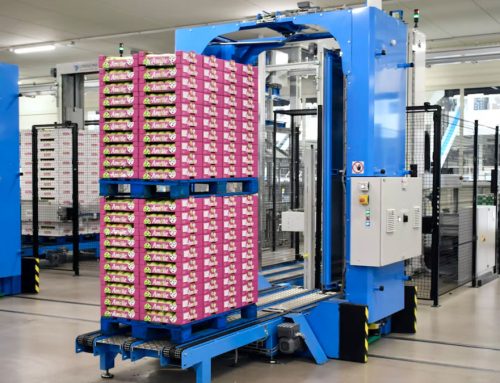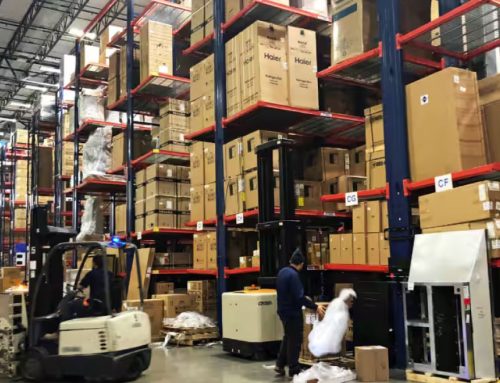The Importance of International Best Practices for the Growth of Indian Warehouses

Posted on: November 28, 2023
In the dynamic landscape of global trade, the role of warehouses is pivotal in ensuring the seamless flow of goods. For India to position itself as a global trade powerhouse, it is imperative that its warehouses evolve by...
In the dynamic landscape of global trade, the role of warehouses is pivotal in ensuring the seamless flow of goods. For India to position itself as a global trade powerhouse, it is imperative that its warehouses evolve by adopting and integrating the best practices observed internationally.
At the heart of global warehousing success lies the seamless integration of technology. The adoption of technologies like the Internet of Things (IoT) and Radio-Frequency Identification (RFID) has revolutionized warehouse operations, enhancing efficiency and accuracy. Indian warehouses must invest in these technologies to streamline processes, reduce errors, and ultimately improve productivity. The upfront investment will be outweighed by the long-term gains in operational efficiency.
 International warehouses leverage the power of data analytics to make informed decisions. By analysing vast datasets, these warehouses gain insights into inventory management, demand forecasting, and supply chain optimization. Indian warehouses should embrace data analytics to transition from reactive to proactive decision-making, enabling them to stay ahead of market trends and disruptions.
International warehouses leverage the power of data analytics to make informed decisions. By analysing vast datasets, these warehouses gain insights into inventory management, demand forecasting, and supply chain optimization. Indian warehouses should embrace data analytics to transition from reactive to proactive decision-making, enabling them to stay ahead of market trends and disruptions.
Transparency across the supply chain is a hallmark of successful international warehouses. Real-time visibility, facilitated by advanced tracking systems, not only ensures accountability but also improves customer satisfaction. Indian warehouses need to recognize the significance of providing end-to-end visibility, as it can enhance trust among stakeholders and bolster their competitive position in the global market.
The global shift toward sustainability is not just a trend but a strategic imperative. Leading international warehouses are adopting eco-friendly practices, reducing their environmental footprint, and incorporating renewable energy sources. Embracing sustainability is not only ethically responsible but also enhances corporate reputation. Indian warehouses should prioritize green initiatives to contribute to environmental conservation while meeting the growing demand for eco-conscious supply chain practices.
While technology plays a crucial role, the success of global warehouses equally hinges on a skilled and adaptable workforce. International warehouses invest significantly in continuous training programs to upskill their employees, ensuring they remain proficient in evolving industry trends. Indian warehouses must recognize the importance of investing in human capital, fostering a culture of continuous learning and adaptability.
International warehouses thrive on their commitment to meeting and often exceeding global regulatory standards. Adhering to international norms ensures product quality, safety, and facilitates market access. Indian warehouses should prioritize regulatory compliance to enhance their credibility on the global stage, building trust among international partners and customers.
Global leaders in warehousing understand the power of collaboration. Collaborative initiatives and partnerships foster knowledge exchange, technology transfer, and resource pooling. Indian warehouses should actively seek collaborations with international counterparts to create a synergistic environment where best practices can be shared and adopted collectively.
While adopting international best practices presents challenges for Indian warehouses, such as initial investment costs and resistance to change, these obstacles can be overcome with a strategic approach. Phased implementation, incentivized training programs, and government support through policy reforms and financial incentives are essential elements in overcoming these challenges.
The Indian government plays a crucial role in fostering an environment conducive to the adoption of global best practices. By introducing supportive policies, providing financial incentives, and facilitating industry-academia collaborations, the government can empower Indian warehouses to make the necessary investments in technology, sustainability, and workforce development.
In conclusion, the need for Indian warehouses to adopt best international practices is not just a necessity; it is a strategic imperative for sustainable growth. By aligning with global standards, Indian warehouses can enhance efficiency, ensure sustainability, and position themselves as formidable players in the global market. The time is ripe for a transformative journey toward excellence, and as Indian warehouses embrace international best practices, they will not only fuel their own growth but contribute significantly to the economic prosperity of the nation on the global stage.
Read the Article on Construction Week Website: https://www.constructionweekonline.in/people/the-importance-of-international-best-practices-for-the-growth-of-indian-warehouses





